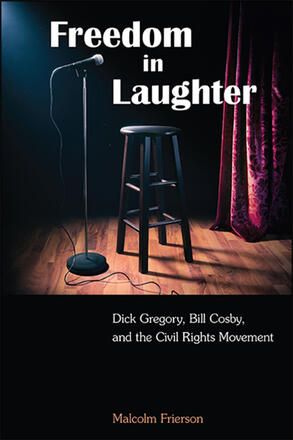
Freedom in Laughter
Dick Gregory, Bill Cosby, and the Civil Rights Movement
Alternative formats available from:
Analyzes the dynamic period in which Dick Gregory and Bill Cosby moved African American professional stand-up comedy from the chitlin’ circuit to the mainstream.
Description
In this groundbreaking book, Malcolm Frierson moves comedy from the margins to the center of the American Civil Rights Movement. Freedom in Laughter reveals how stand-up comedians Dick Gregory and Bill Cosby used their increasing mainstream success to advance political issues, albeit differently. Frierson first explores Gregory's and Cosby's adolescent experiences in St. Louis and Philadelphia and then juxtaposes the comedians' diverging humor and activism. The fiery Gregory focused on the politics of race, winning him credibility at the expense of his career in the long term, while Cosby focused on the politics of respectability, catapulting him to television and film stardom. Although militant blacks repeatedly questioned Cosby's image, Frierson suggests he and Gregory both carried the aims of the black freedom struggle. With an epilogue that considers the comedians' post–civil rights era trajectories, this book is accessibly written and filled with Gregory's and Cosby's original material, appealing to academics, history buffs, and anyone interested in American popular culture.
Malcolm Frierson is Associate Professor of History at North Lake College.
Reviews
"Frierson highlights the connections between artistic expression and activism as a mutual exchange in the process of continuing to enlighten, inspire, and transform a painfully divided society. The book interrogates the stirring contrast between humor and hurt through an analytical vantage point that often transcended race in an era largely defined by the separation of blacks and whites. " — Aaron X. Smith, Temple University